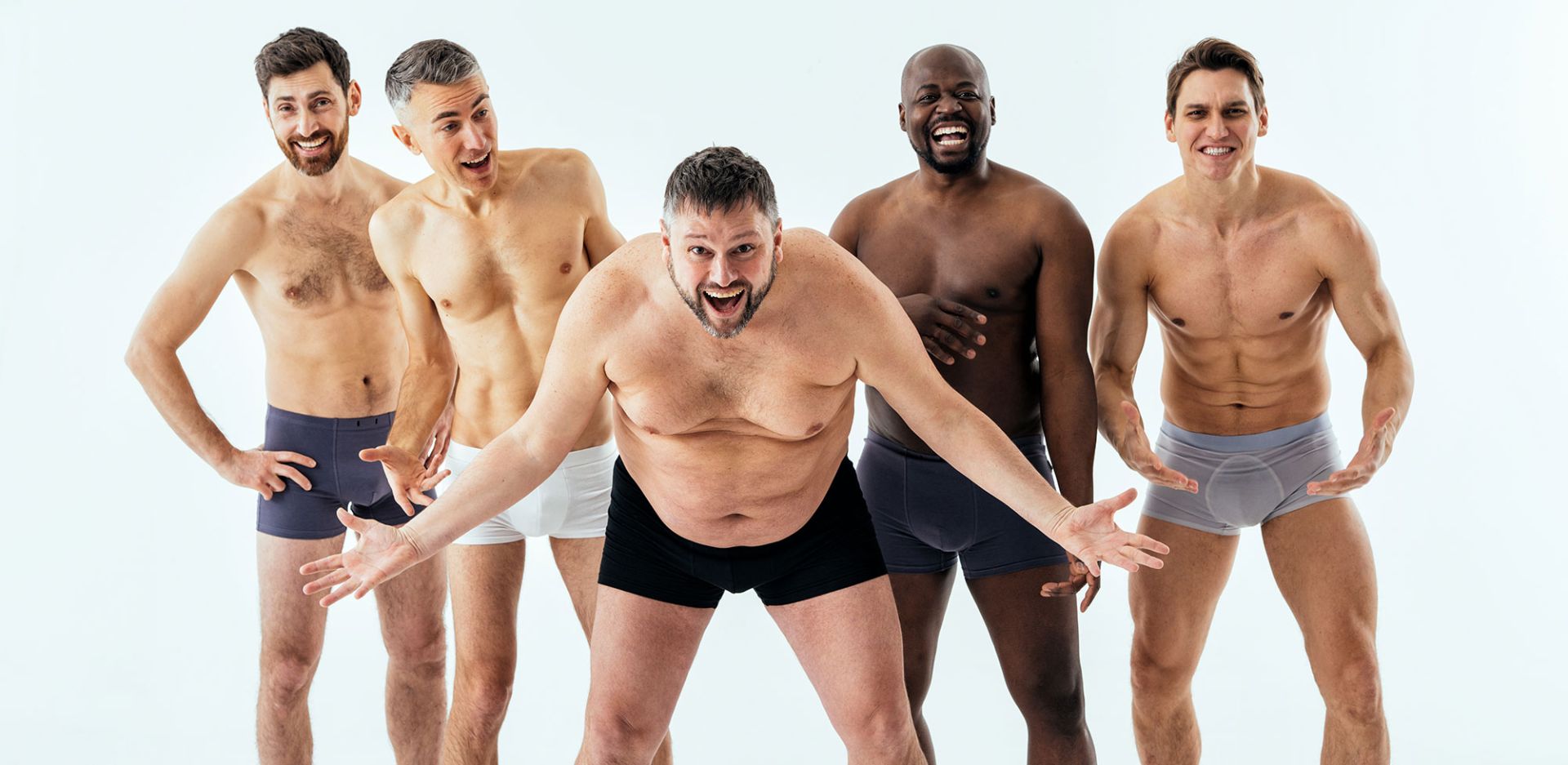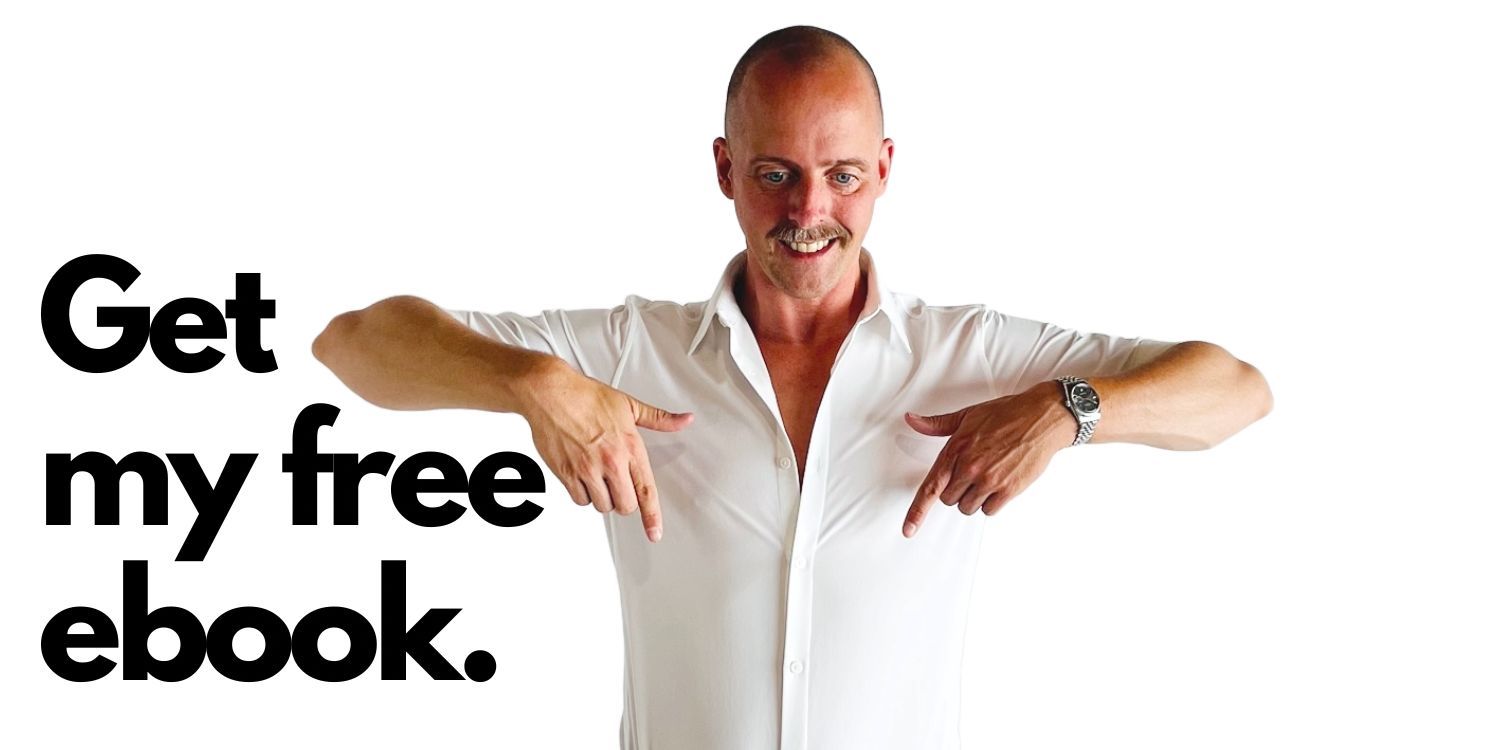The relationship between being gay and pursuing the ideal body
Feb 27
/
Rene Luisman
Appearance plays an important role in the gay community. Where does this obsession with the body come from? And what can you do if you are unhappy with your own body?
When I think of the ideal male body, I think of a slim, trained body. Strong upper arms, broad shoulders, a tight stomach and powerful, muscular thighs.
If I then look in the mirror myself, then the harsh reality is that I am nothing like my ideal image. I see a man in his forties whose first signs of age are quickly becoming visible. The lines in my face are deepening, my hairline is slowly receding and my budding tummy tells me that my fat percentage is a bit on the high side.
On good days, this motivates me to eat even more consciously and to exercise more. On less good days it feels like a shortcoming. I criticize myself for letting go too much. And that such a tight, trained body is no longer for me. So I eat and drink a little more, because it doesn't matter anymore anyway.
The relationship between being gay and having the ideal body
Whether you scroll through social media, open a dating app or go to a gay club, the trained male body is everywhere. It is therefore not surprising that research1 shows that most gay men are attracted to a slim, athletic body. We find other men with such a body extremely attractive, and would like to have such a muscular body ourselves. Another study2 shows that many gay men are insecure and dissatisfied with their own bodies. More often than straight men, they have a negative image of their own body.
Whether you scroll through social media, open a dating app or go to a gay club, the trained male body is everywhere. It is therefore not surprising that research1 shows that most gay men are attracted to a slim, athletic body. We find other men with such a body extremely attractive, and would like to have such a muscular body ourselves. Another study2 shows that many gay men are insecure and dissatisfied with their own bodies. More often than straight men, they have a negative image of their own body.
Appearance is a determining factor when choosing a partner. For some gay men it feels like your body says something about how masculine, sexy and wanted you are. That you may never find a partner if you don't meet the ideal image yourself. As a result, you may be obsessed with food, exercise and appearance.

Social media makes us compare ourselves to others more than ever. Advertisements on social media and in magazines make it seem as if the ideal body can be made. As if anyone could get such a tight, toned body. All you have to do is eat less and train harder, right?
More than just dedication and discipline
But the reality is that getting and keeping such a muscular and toned body takes dedication and discipline. It also depends on your physique, age and any physical limitations. And even if you have a muscular body, this is no guarantee for more self-confidence and satisfaction. The feeling you have about yourself, also called your self-esteem, is partly determined by the beliefs about yourself and your body in comparison to others. Changing your body does not automatically change your self-image. It often takes more.
But the reality is that getting and keeping such a muscular and toned body takes dedication and discipline. It also depends on your physique, age and any physical limitations. And even if you have a muscular body, this is no guarantee for more self-confidence and satisfaction. The feeling you have about yourself, also called your self-esteem, is partly determined by the beliefs about yourself and your body in comparison to others. Changing your body does not automatically change your self-image. It often takes more.
What can you do to accept your body?
First of all, it helps to consider why you want to change. And whether losing weight or gaining muscle is the solution. An underlying belief that you're not good enough usually doesn't go away when you lose a few pounds. In addition to eating healthier and exercising more, it helps to address the underlying belief. By talking about it with friends or a professional.
First of all, it helps to consider why you want to change. And whether losing weight or gaining muscle is the solution. An underlying belief that you're not good enough usually doesn't go away when you lose a few pounds. In addition to eating healthier and exercising more, it helps to address the underlying belief. By talking about it with friends or a professional.
And by not letting your worth depend on your appearance. Rather build a more nuanced image of yourself in which your beautiful and less beautiful qualities may be there. Regularly writing down positive traits about yourself is a proven way to do this. And sometimes being happy with your body is still a step too far. Then it makes a big difference if you can see your body neutrally, instead of rejecting or hating it.
'Make your goals big enough to inspire yourself, and small enough to actually achieve them.'
It also helps to set realistic goals. Every body is different. Comparing yourself with top athletes, while you exercise twice a week, only leads to disappointments. It helps me if I compare myself to the person I was yesterday. Every day I challenge myself to do just that little bit better than yesterday. And if this doesn't work out today, there's another chance tomorrow.
Make your goals big enough to inspire yourself, and small enough to actually achieve them. Then think about what actions you are willing to take to achieve this goal. Focus on your health instead of appearances. For example, by making healthier choices, instead of choices to punish yourself or deny things. What matters is that you feel good about it. That makes you last longer and contributes to a better feeling about yourself.
Sources:
- Is Internalized Homonegativity Related To Body Image? - 2006, Andrew Reilly (Northern Illinois University) and Nancy A. Rudd (The Ohio State University)
- Men's Bodies - 2005, Murray J.N. Drummond (University of South Australia)
You read an article by Gay Men Coaching
How I can support you:
- Self Love Course - Learn step by step how to build a positive self image.
- Men's Group - Find out how other gay men deal with issues such as intimacy and sexuality.
- Coming-out program - If you could use some support before, during or after your coming-out.
- Individual coaching - If you want to improve the relationship with yourself or others.
And more about me and my approach:
Follow me on:
Latest from our blog

Get in touch
-
Geestbrugkade 32, 2281 CX Rijswijk, Netherlands
-
contact@reneluisman.nl
-
Chamber of Commerce number: 59693908
-
IBAN: NL49 KNAB 0259 9752 22
Join Our Newsletter
Get monthly updates on news, articles, tips and more.
Thank you!
Gay Men Coaching © 2014 - 2025

with 5 powerful tools to feel confident
As a bonus you will receive a monthly e-mail with tips & inspiration. You can easily unsubscribe at the bottom of every newsletter.
